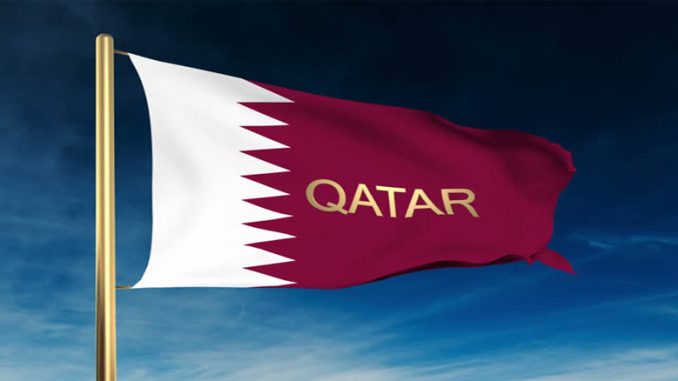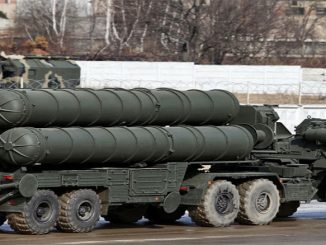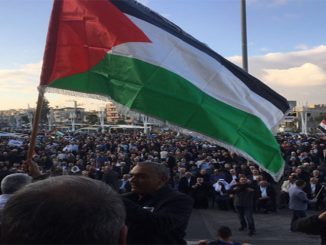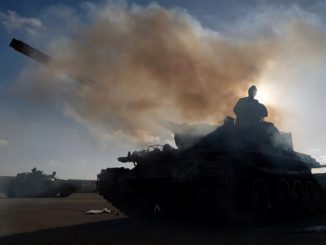
 BY: Taha Kılınç*
BY: Taha Kılınç*
The difference of opinion between Qatar and its neighbors on several matters is common knowledge. Hence, the latest tension is no surprise to those who are closely following the region. Saudi, UAE and Egyptian media frequently publish stories against Qatar. It is possible to see on television the heated debates linking the Qatari government to terrorism. In this aspect, the press openly attacking the emir is also not surprising.
However, the crisis erupting immediately after U.S. President Donald Trump’s visit to Riyadh, unavoidably brings certain questions to mind. Was Trump’s giving the impression of rapport with Egyptian President Abdel-Fattah el-Sissi and particularly mentioning Hamas in his speech as a “terrorist organization,” perceived as an indication of isolating Qatar, which is known for its close support to the Muslim Brotherhood (Ikhwan) and Hamas? It is quite possible.
In the negotiations between the U.S. and the Gulf – not announced to the public – special promises may have also been made in relation to pushing Ikhwan and Hamas outside of the equation. As a matter of fact, it may have even been tied to U.S. support to the Gulf against Iran, to completely severing ties with Ikhwan and Hamas. Such is exactly what Egypt and the UAE want anyway.
The crisis, drawing attention in terms of its timing, was also educational in that it showed the degree of fury against Qatar ready to explode. Despite its media opportunities and money, the Doha administration found itself alone and besieged against the Arabs in a matter of hours. The tension has also shown the positions Arab countries will take in similar future situations.
The aims and objectives of Qatar, which attempts to get into “deep waters” in the Middle East despite its tiny surface area and little population, have always been debated. The question, “What is Qatar trying to do?” is frequently asked in this context.In order to understand what Qatar is trying to do, there is benefit in taking a brief look into its recent history.
Qatar, which has been under British rule from 1850 to 1971, and has since then been continuing its existence as an independent emirate, owes its wealth to natural gas. Today, the country that owns the world’s third largest natural gas reserves is home to people from 87 different nations. The local national population in the country of 3 million makes up merely 13 percent of the total population. In this sense, Qatar is like an extremely successful gigantic parent company.
Emir Hamad bin Khalifa, who deposed his father Khalifa bin Hamad in a bloodless palace coup in 1995, played a vital role in natural gas being turned into prosperity and getting Qatar to reach its current position of power. As soon as he came to power, Emir Hamad established Al Jazeera television by utilizing BBC’s technical infrastructure and enabling Qatar to stand out in media too. Al Jazeera, which quickly made an impact with its broadcasts touching on the standard judgments and taboos of the Arab world, was not too late to draw the ire of Arab monarchies.
Emir Hamad passed his power to his son Tamim in 2013 and retired. As much as it is claimed that Saudi Arabia’s pressure was effective in the emir’s abdication of the throne, it is said that the severe diabetic condition from which he suffers also had a role in this decision.
Qatar uses its spectacular wealth both to make investments abroad and to direct Middle East politics. The money spent especially on real estate purchases and art have reached billions of dollars. The funds allocated for bloody and bloodless conflicts are likewise.
Today, capital Doha is an asylum for those who are in political dire straits in the Arab world. This is where Hamas settled after leaving Damascus. Algeria’s former opposition leader Abbasi al-Madani is still in Doha. In the past, Chechen leader Zelimhan Yandarbiyev also lived in Doha until he was assassinated in 2004. Egyptian scholar Yusuf al-Qaradawi is likewise a name that is integrated with Qatar.
As far as it is understood, Qatar is most likely seeking to become a permanent actor in the Middle East – with the guidance of the U.K. It is doing this by supporting the major/important actors in every country and with efforts to shape balances accordingly. As can be seen in the latest crisis, although from time to time, this attitude pushes it into a corner in the Gulf, its economic and political advantages help Qatar remain on stage as a strong actor.
* * *
The atmosphere of prosperity and happiness presently enjoyed by Gulf countries is, without a doubt, temporary. In 30-40 years from now, we may see today’s prosperous cities start to become isolated. In this aspect, it could be said that the steps Qatar is trying to take today are important and critical.
The degree and form of resistance 37-year-old Emir Tamim will show in response to pressures from sister countries, will also effect the future of the Arab political domain along with the future of his own country.
*Taha Kilinç is a Turkish columnist. He writes for Yeni Şafak Turkish daily newspaper.
(Published in Yeni Şafak on Wednesday, May 31, 2017)



